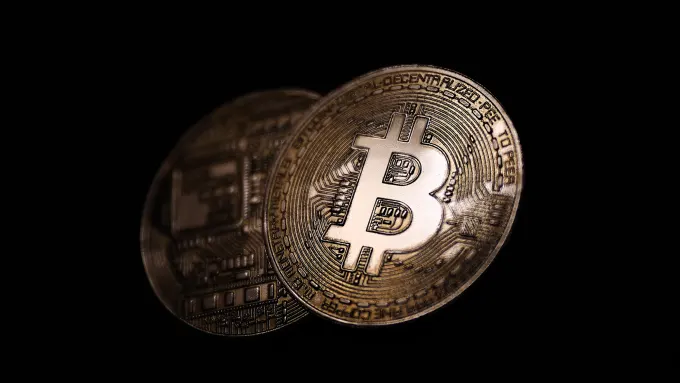This story first appeared in the Before the Bell newsletter of CNN Business. Do you not subscribe? You can join here. By clicking the same link, you can listen to the newsletter as an audio file.
With the rise of bitcoin and gold, it has already been a great week for alternative assets. However, analysts are cautioning investors against jumping in too quickly. All that sparkles, all things considered, isn’t gold.
What’s going on: Early on Wednesday, the price of bitcoin soared past $44,000. Since the spring of 2022, it hasn’t been close to this level. That is when Land — a famous “stablecoin” that was intended to hold a $1 cost — lost its stake, and when the associated Luna digital currency dropped close to 100% very quickly, cutting down the majority of the crypto market.
Investor optimism that the Federal Reserve will cut interest rates in 2024 and that the Securities and Exchange Commission will approve a bitcoin-focused exchange-traded fund to make it easier for mainstream investors to get involved are the reasons behind the recent surge in cryptocurrency. The SEC faces a January 10 cutoff time to support the application.
Gold prices, on the other hand, surged on Monday to a record high of $2,135.40 as investors priced in larger Fed rate cuts. On Tuesday, prices dropped, but the value of bullion remained high.
On Tuesday, advocates of cryptocurrencies and precious metals were enthusiastic, asserting that this could signal the beginning of a new era and a resurgence in alternative assets.
Tyler Winklevoss, co-founder of the cryptocurrency exchange Gemini, wrote on X that “Bitcoin at 42k is the answer to the ultimate question of life, the universe, and everything” and that “Bitcoin is so back.”
According to John Reade, a market strategist at the World Gold Council, a group of gold producers, gold prices could “quite possibly” surpass Monday’s record high given that investors anticipate several rate cuts in the coming year.
However, only a few days can make a big difference. It’s possible that advocates are getting ahead of themselves.
Why? Read on.
No interest paid on gold: Although technically gold reached an all-time high this week, that assertion requires some background.
Since gold does not earn interest, Deutsche Bank’s Jim Reid wrote in a note on Tuesday that “even though we have hit all time highs in nominal terms, we are over 20% below the inflation-adjusted peak seen in 1980.”
According to Reid, “it only keeps pace with inflation if you buy it at the correct time,” even though gold may appear to be a great way to hedge against inflation. In fact, it lags behind traditional assets almost everywhere from the medium to long term.
A new report by Deutsche Bank found that beginning around 1800, gold has had an expansion changed return of 0.32% every year. That contrasts with equities’ 6.83 percent return and Treasuries’ 3.07 percent return.
“It battles on a serious premise,” said Reid. ” You can be a long-run inflationist yet at the same time be a piece disappointed by Gold as a venture.”
Crypto vulnerability: Regardless of the buzz around the normal go-ahead of a spot bitcoin ETF in January, there’s no assurance that the SEC will give its thumbs up. Even if it does, there is no assurance that it will propel digital currencies to new heights.
While bitcoin has not moved toward its unequaled record of close $69,000, set in November 2021, a large part of the cost expansion comes from financial backers front-running the SEC’s possible endorsement, said Antoni Trenchev, prime supporter and overseeing accomplice of the crypto moneylender Nexo. That makes one wonder of whether this is a “purchase the-gossip, sell-the-news occasion” he said.
He said that investors might “rush for the exit when it happens,” similar to when the first bitcoin futures ETF was approved in the fall of 2021 and prices quickly fell 87 percent.
Trenchev additionally brought up that bitcoin frequently goes “into switch” after it breaks key edges. ” According to him, “Bitcoin sank below $30,000 two weeks after it pierced $40,000 for the first time during the last bull market in 2021.”
Fed cautious: At least for this cycle, the Fed is probably done raising interest rates to fight rising inflation. However, this does not necessarily imply that it will cut them anytime soon.
Various Took care of authorities, including Seat Jerome Powell, have shown as of late that it’s still too soon to discuss rate cuts. All things being equal, policymakers will zero in on whether the ongoing asset rate is adequately prohibitive.
“It would be premature to confidently conclude that we have achieved a sufficiently restrictive stance or to speculate on when policy might ease. During a discussion that took place last week at Spelman College, Powell stated, “If it becomes appropriate to do so, we are prepared to further tighten policy.”
Other Took care of authorities have supported that position.
“I’m not pondering rate cuts by any stretch of the imagination at the present time. In an interview last week, Federal Reserve Bank of San Francisco President Mary Daly stated, “I’m thinking about whether we have enough tightening in the system and are sufficiently restrictive to restore price stability.” Conversation about financing cost cuts isn’t especially useful right now. Maintaining our focus on lowering inflation is essential.
COP out?
COP28, the annual international climate summit held in Dubai by the United Nations, is well under way, and it looks like big energy companies are making sure their voices are heard as pressure grows for fossil fuels to be phased out or even phased out completely.
What’s going on: In excess of 2,400 individuals associated with the petroleum derivative industry enrolled to go to the occasion, almost multiple times the number that pursued last year’s environment gathering, as per an examination distributed Tuesday.
The report from a coalition of corporate watchdog and climate advocacy groups, including Global Witness, says that employees and representatives of fossil fuels will outnumber every country’s delegation, with the exception of Brazil and the United Arab Emirates, which will be hosting COP28.
In contrast, Sultan Al Jaber, the oil tycoon in charge of the climate summit, shocked attendees when he stated prior to the event that there is “no science” to support phasing out fossil fuels in order to keep global warming below a critical threshold. According to Al Jaber, his remarks were misinterpreted.
“The genuine result of COP28 is that the significant unrefined petroleum and flammable gas makers expect to control carbon catch, green hydrogen creation, and elective energy age,” said Louis Navellier of Navellier and Partners in a note on Tuesday. ” Basically,” he expressed, “the speed of the green change will be constrained by significant energy makers.”
Naming names: However, this does not imply that energy companies were entirely immune. The US Special Presidential Envoy for Climate Change, John Kerry, was critical of energy companies and even singled out Chevron following the company’s decision to withdraw from a pledge to cut methane emissions.
“We have no genuine proof that [Chevron] and a ton of others are doing what each organization needs to do,” he said at the Bloomberg Green highest point on Tuesday.
At the summit, Al Gore also criticized the fossil fuel industry and criticized Darren Woods, CEO of Exxon Mobil. He is not worth taking seriously. He’s safeguarding his benefits and putting them in a higher need than the endurance of the human progress,” he said of Woods.
In any case, said Navellier, “the main concern is efficient power energy is pricey and the petroleum derivative industry will make barely sufficient environmentally friendly power energy to conciliate government controllers, however petroleum derivatives will persevere until the end of our lifetimes.”
Aluminum levies have cost the US lager industry $2.2 billion
Aluminum tariffs have cost the beverage industry in the United States nearly $2.2 billion over the past six years, according to new research from the Beer Institute, an advocacy group for the beer industry.
In accordance with Section 232 of the Trade Expansion Act, former US President Donald Trump imposed a 10% tax on aluminum imports from the majority of nations in 2018.
Over 74% of all brew created in the US is bundled in aluminum jars and jugs, and aluminum is the absolute most huge info cost in American lager producing, as per the Brew Foundation.
“Brewers and endless focused Americans in businesses that rely upon aluminum have been enduring it for a really long time,” said Brian Crawford, president and Chief of the Lager Foundation, in a proclamation. ” The truth is that these tariffs hurt consumers, who are already feeling the effects of inflation at the register, far more than they help.
There are in excess of 6,600 distilleries in the US. The business upholds around 2.4 million positions and contributes $409 billion yearly to the US economy.

